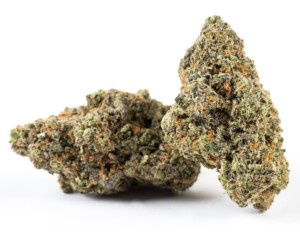Substance use disorder is a brutal disease that’s uncomfortable to discuss, but an honest accounting of it is the only path to enlightenment
This post is reprinted with permission from one of TreatmentMagazine.com’s go-to blogs about addiction, treatment and recovery: Recovery Review.
By William Stauffer
The other day, as I was going through social media, I saw a friend talking about being in a store when what he had purchased set off an anti-theft alarm. He spoke about what a great feeling it was to stop and wait for a clerk to deal with the situation and how it differed from his active addiction experience. He noted it was far different because he shoplifted while in the grips of his addiction when he engaged in illegal conduct to support his use. He was not glorifying it, and the focus of what he said was about how positive recovery is for him because he no longer does those things. Someone told him on his thread that talking about his consequences in that way was wrong.
The unvarnished truth is that addiction often leads people to do things outside of their own codes of conduct, even illegal and dangerous things. It was true for me; it is true for the vast majority of us with severe substance use disorders.”
I am seeing this form of social media censoring occurring more frequently as tribalism seems to be taking over social discourse in our society, not just in the addiction and recovery realm. But it is particularly dangerous for the recovery community, who have long benefited from open discourse with a focus on broad consensus building. Ours is a community with many strong opinions. We achieve great things when we find and work on areas of common concern. The dangers of homogenizing our stories was a topic last year in this paper on the topic of recovery storytelling. It was an honor to work with Bill White and Danielle Tarino on a paper focused on opening up dialogue on personal privacy and public recovery advocacy focused on the ethics of sharing our stories and their value to the new recovery advocacy movement.
What caught my eye in reading the post was that the individual was being chastised by another person for talking about addiction in ways told that person’s uncomfortable individual truth, even as they were emphasizing the benefits of recovery. The sense is that even acknowledging things within the common knowledge of our society like criminal behavior in active use might reinforce stigmatized attitudes about people who experience an addiction. This moves us towards an unrealistic, homogenized version of addiction and recovery that is not actually reflective of what a severe substance use condition looks like. The unvarnished truth is that addiction often leads people to do things outside of their own codes of conduct, even illegal and dangerous things. It was true for me; it is true for the vast majority of us with severe substance use disorders. There is a long list of things that I did while addicted that I would not do now with a fully functioning brain.
Addiction is a condition of the brain, particularly the areas of the brain associated with executive function. The reasoning areas. Addiction also impacts the limbic system, the area of the brain that deals with base functions, the four Fs of evolutionary drive. For me, it was like the area of the brain in charge of reasoning between right and wrong was the quietest of whispers and the base function area of the brain that wanted the numbing sensation of the drug was shouting in my ear to do whatever it took to use drugs and ignore everything else between myself and the drug. As my brain healed, this reversed, and the executive function regions became much louder, the limbic system a quiet whisper. I have spoken about this dynamic with many persons who have experienced addiction over the years and in general that seem to understand this as similar to their own experience. It is common for those of us with severe forms of addiction. It is frightening to know from a lived experience what happens to volition in the grips of addiction, trust me on this.
What bothered me most about reading the exchange is that there is an increasing tendency to admonish anyone who acknowledges the things that we all commonly know about addiction. That drug use can lead to addiction and by extension, as addiction takes hold in the brain, it can cause people to do things that they would not otherwise do. I stay in recovery for two fundamental reasons. The first of which is that I can live the life I want free of drugs and alcohol. Moderation is not a choice for a person like me with a severe form of the condition. My life is much better this way! The second reason is that I am reasonably sure from what I can see in the literature and from experiences I see around me that for a person with a severe substance use disorder like me, use leads down a path where my very ability to act on my own volition become uncertain as addiction hijacks the brain. I have a responsibility to myself and others around me not to allow that to happen. Like thousands of others with severe substance use conditions, I don’t use drugs, so my brain stays functional and I remain a fully functional, productive citizen.
We must ensure that once addicted, a person is treated with respect and offered compassionate help. We don’t treat a diabetic as less than human, but we do treat people with addictions in this manner.”
In some work with colleagues, I am doing currently on stigma, the topic of this post is one that we are having a fair amount of productive dialogue on. Stigma against addiction, drug users and people in recovery is a profound problem, one we are focused on addressing with hard data in ways that have not been done before. It is an important project. In that survey of thousands of Americans, 71% of respondents believed that society at large considers individuals who use drugs problematically to be outcasts or non-community members. Views on people in recovery were just as abysmal. How can one get help if society sees you as an outcast?
The magnitude is immense, according the 2016 Surgeon General’s Report on Alcohol, Drugs, and Health 20.8 million people (7.8 percent of the population) met the diagnostic criteria for a substance use disorder in 2015. We need to change attitudes, be seen as human and treated as such. That is not where we are right now, not anywhere close. The perception in the general public is that roughly only one in three Americans see me as a full person because of my addiction and recovery status.
We must ensure that once addicted, a person is treated with respect and offered compassionate help. We don’t treat a diabetic as less than human, but we do treat people with addictions in this manner. It must change if we are to help the large portions of our population who come become addicted more effectively. But do we want to homogenize addictive drug and ignore the devastation that far too often comes with it? I hope not!

Destigmatizing drug users is far different than destigmatizing addictive drug use. There are taboos against addictive drugs for good reason, particularly in relation to addictive drug use by young people. We know that developing brains are more susceptible to addiction and that early drug use increases the risk of addiction. Most of us would not want to destigmatize heroin use for kids. Drug use is dangerous, we draw a fence around it and let people know it is dangerous for good reason. Look at what alcohol, a legal drug can do to a person and change their very nature as addiction takes hold. I don’t want my family members experimenting with methamphetamine. Cannabis related highway fatalities are dramatically increasing. I don’t want the driver in the car heading towards me to be impaired on cannabis or alcohol. We have to be able to talk about these very real and very tragic consequences. Open discourse about such things is becoming hard to do because of the dynamics of tribalism present in our community and in the larger society.
We do not want our babysitters high on heroin for good reason, but we should want to help the person and everyone so impacted. There are serious risks to public safety that come with drug use. We also know that people who use drugs heavily over time often experience significant changes to their personalities and do things they would not do in an era of life prior to their decent into addiction. We should feel compassion not derision.
Sugarcoating the terrible consequences of severe addiction would be wrong of us, even as we work towards reducing stigma aimed at the persons who experience addiction and those of us in recovery to ensure fair treatment in society.”
We should not be chastising each other for talking about our own realities with severe addiction, even as there is growing awareness that there are people with less severe forms of substance use. Sugarcoating the terrible consequences of severe addiction would be wrong of us, even as we work towards reducing stigma aimed at the persons who experience addiction and those of us in recovery to ensure fair treatment in society. Addiction is a deadly and serious condition, and we must acknowledge risks associated with addictive drug use even as we work to embrace our brothers and sisters in the grips of addiction.
While these are important conversations as a society and as a recovery community, we seem increasingly ill equipped to have them as we move away from nuanced open dialogue and into entrenched ideological camps in parallel with the rest of society. The latter dynamic is perhaps just as dangerous as destigmatizing addictive drug use, in my humble opinion. Many lives are in the balance and history shows us we can and do recover, and that once we do, we have the capacity to come together and do great things. Homogenizing what addiction looks like does not move us in that direction.
This Recovery Review post is by William Stauffer, who has been executive director of Pennsylvania Recovery Organization Alliance (PRO-A), the statewide recovery organization of Pennsylvania. He is in long-term recovery since age 21 and has been actively engaged in public policy in the recovery arena for most of those years. He is also an adjunct professor of Social Work at Misericordia University in Dallas, Pa. Find more of his writing, as well as a thought-provoking range of articles, insights and expert opinions on treatment and addiction at RecoveryReview.com.blog.
Top photo: Shutterstock; bottom photo: Hakuna Matata














